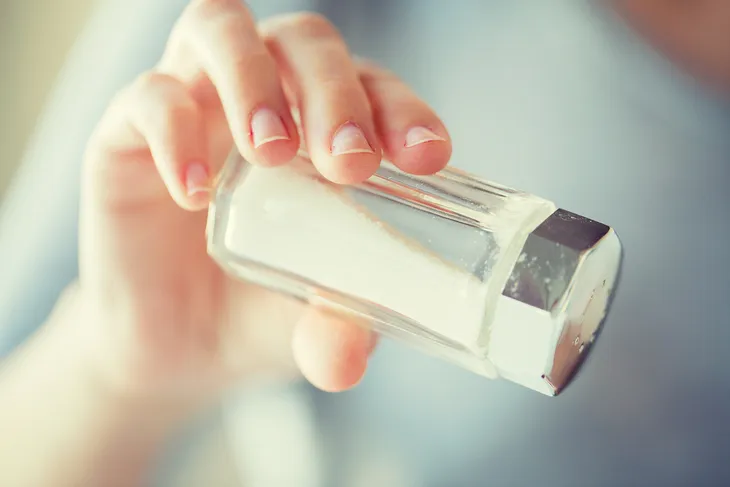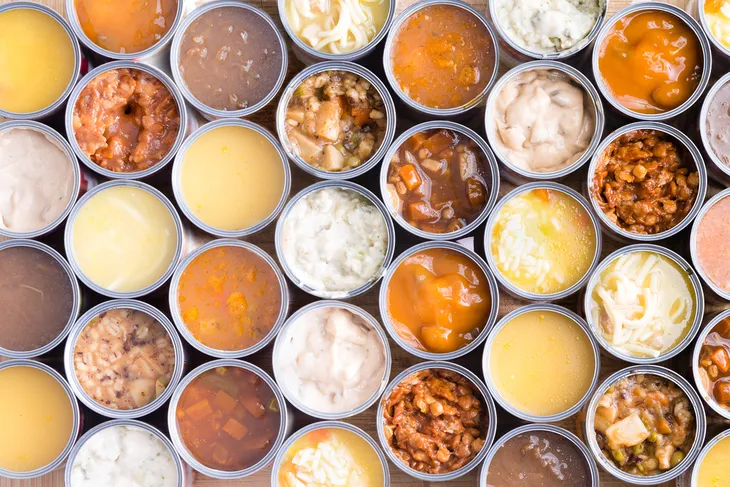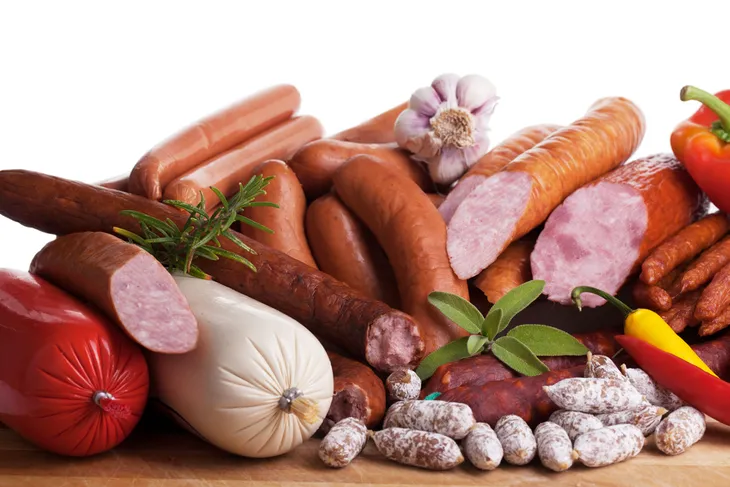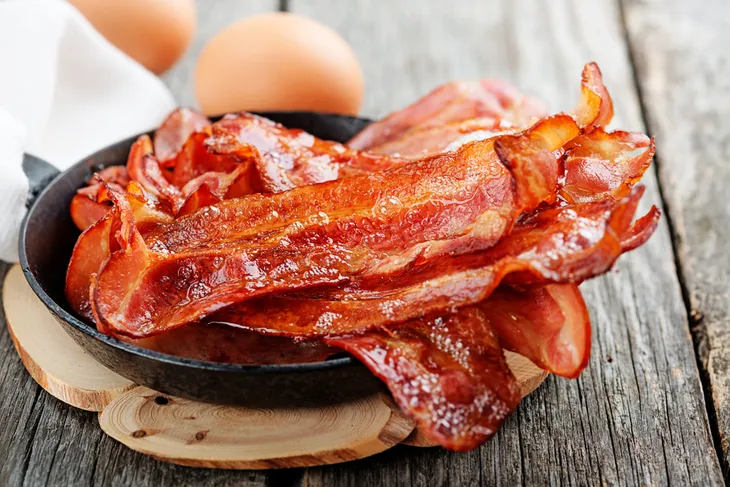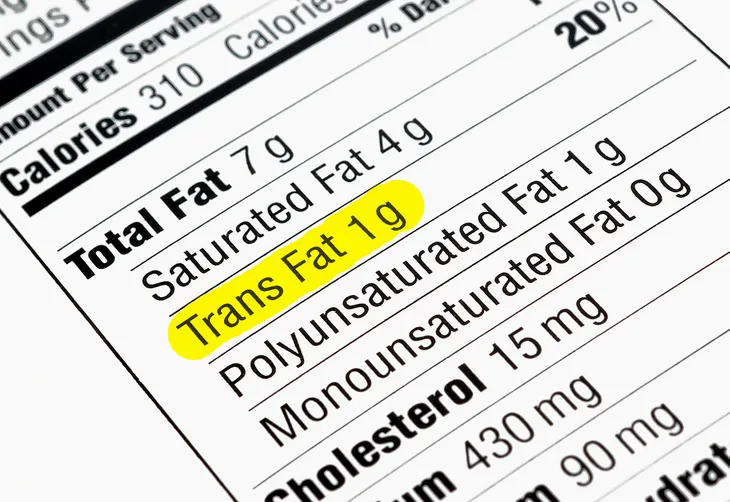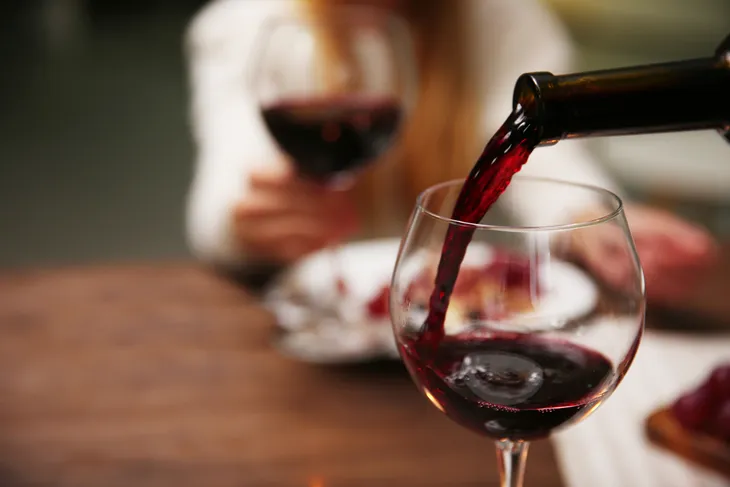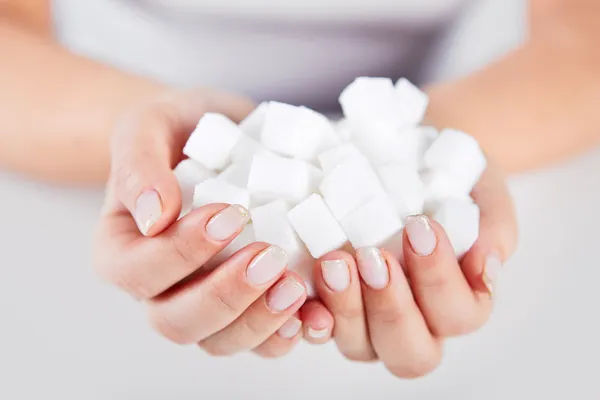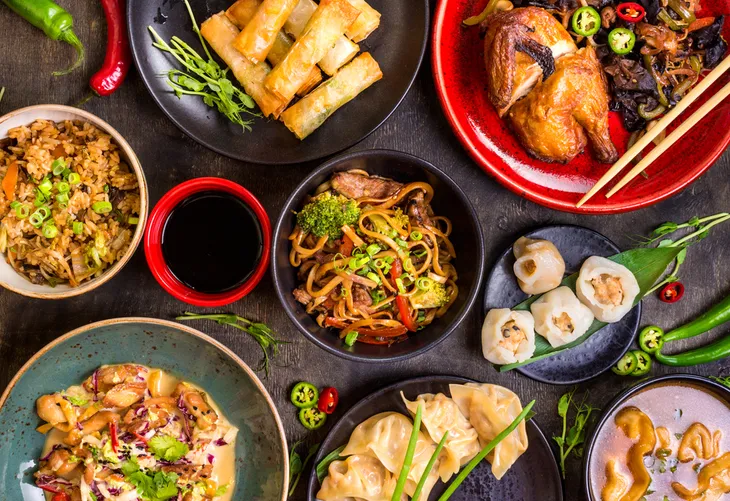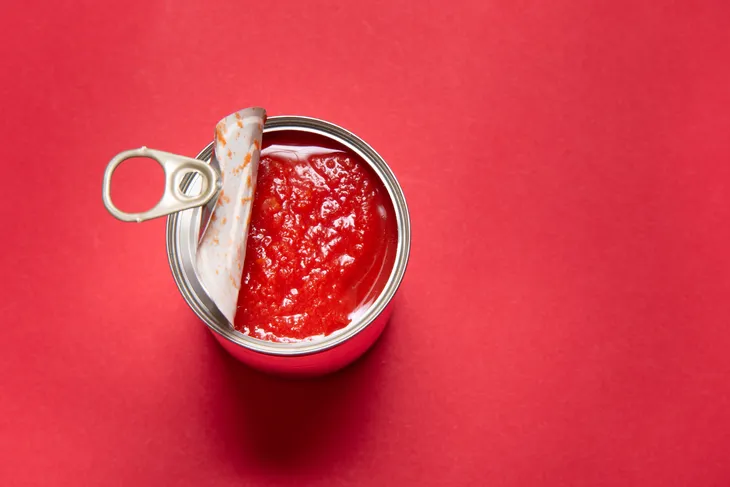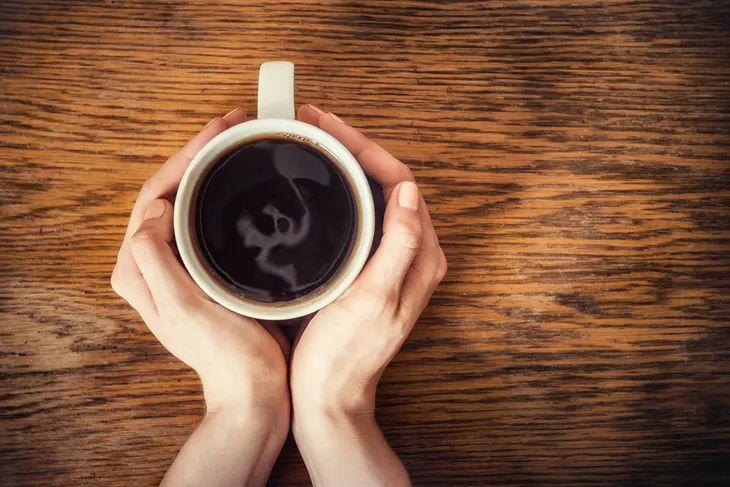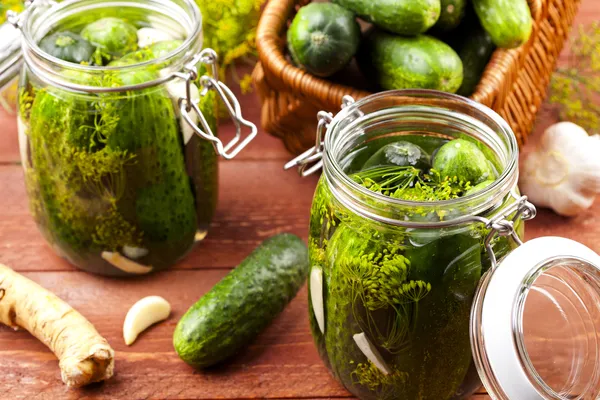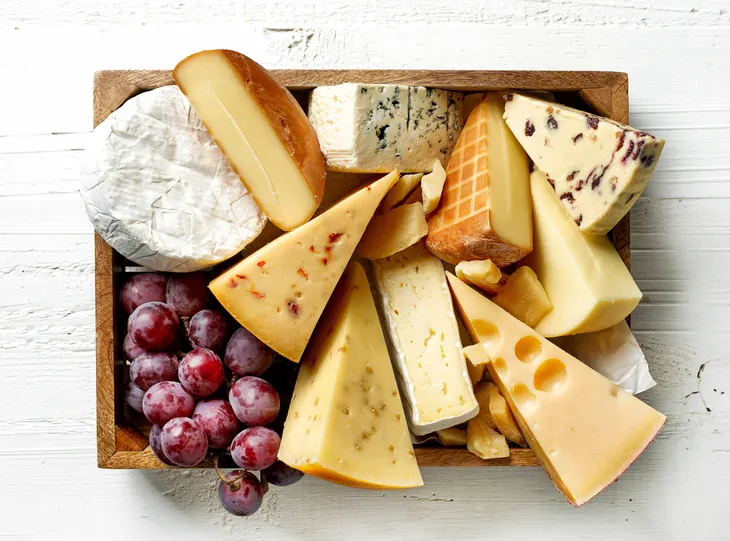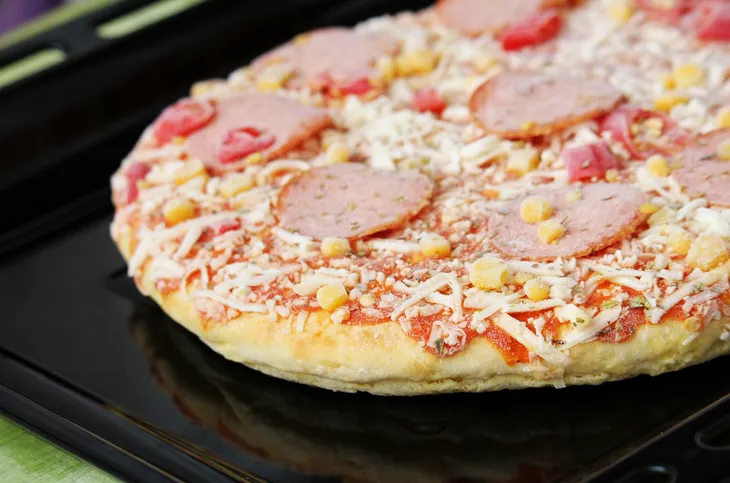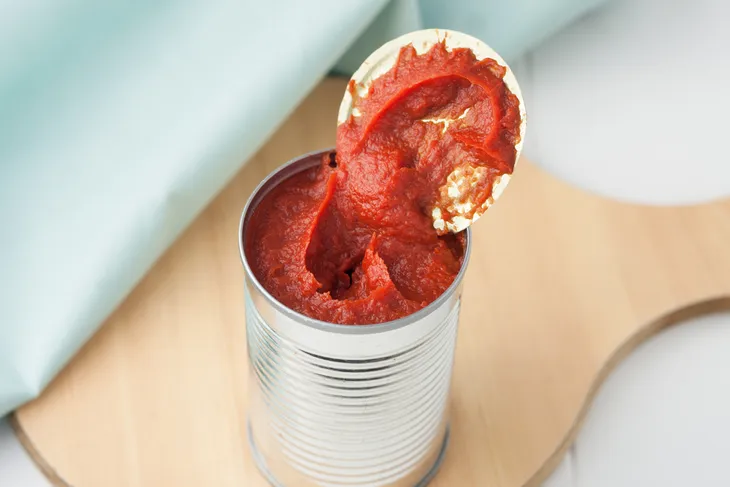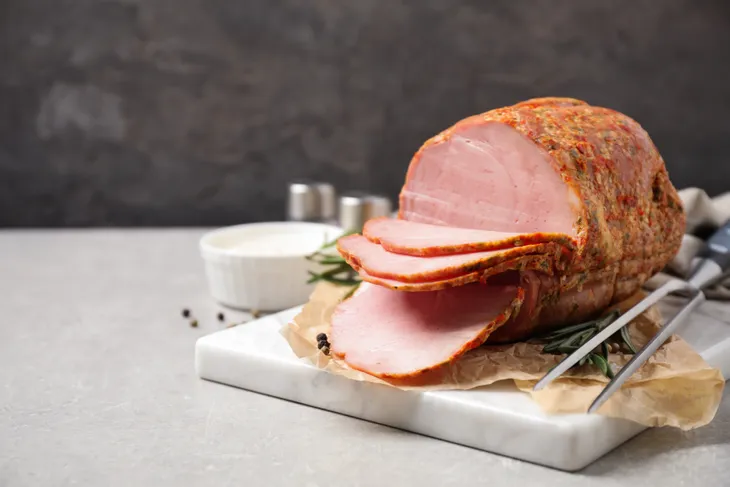High blood pressure is a pretty common problem, in fact, according to Reader’s Digest it affects one in three people. Many of these people won’t even know they have it because high blood pressure usually offers no symptoms, so it can go unnoticed for quite some time which is incredibly dangerous because it’s a huge risk factor for heart disease and stroke.
Luckily, there are things that can be done to manage or protect against high blood pressure, like eating a healthy diet. Eating healthy typically means limiting or eliminating certain foods, including these 15…
1. Salt
We all need a little salt in our diet, but too much salt isn’t good for anyone and it’s especially bad for someone with high blood pressure. Everyday Health notes that for most people a low sodium diet will help manage blood pressure levels. “The higher the sodium intake, the higher the blood pressure,” says Gbenga Ogedegbe, MD, MPH, a clinical hypertension specialist, director of the Center for Healthful Behavior Change, and associate professor of medicine for the division of general internal medicine at New York School of Medicine in New York City when talking to Everyday Health.
How exactly does sodium affect blood pressure? It causes water to go into the bloodstream which inadvertently increases the amount of blood and blood pressure. Don’t worry, you don’t have to throw away your salt shaker. Ali Rahimi, MD, a cardiologist at Kaiser Permanente in Atlanta tells Reader’s Digest that most of the sodium we consume is from processed foods, so just be sure to limit your intake of processed food, read food labels, and eat more fruits and veggies.
2. Canned Soups
Canned soups are super convenient which is why most people buy them. They’re a great go-to meal when you’re pressed for time or even just as a pick me up when you’re not feeling well. Unfortunately, they aren’t a great thing to indulge in regularly because they’re often loaded with sodium (this is why they taste so good). The USDA lists some soups as containing up to 900 mg of sodium in just one serving (1/2 a cup). That’s A LOT of salt, especially if you eat the entire can which could lead to a person consuming more than 2,000 mg of sodium. The high amount of sodium in canned soups means they’re also not good for blood pressure.
To ensure your health and protect against high blood pressure, always read the nutrition label or reach for the reduced-sodium option. When time permits, making your own soup is always the best option because that way you know exactly how much salt you’re consuming.
3. Processed Meat
We should be wary of any food that is labeled as processed. One of the most common forms of processed food is processed deli and lunch meat. While they’re great in terms of convenience, especially when it comes to packing lunches, they’re also extremely high in sodium.
“A 2-ounce serving of some lunch meats could contain 500-milligrams of sodium or more. If you have a heavier hand with the cold cuts, you’ll get even more sodium,” writes Healthline. This is even before you add any condiments like mustard or mayonnaise, or additional toppings like pickles and cheese!
4. Bacon
Let’s face it, bacon isn’t great for anyone let alone someone who suffers from high blood pressure! This is mainly because of it’s sodium and fat content. Fox News talked to Dr. Omid Javadi, cardiovascular and thoracic surgeon at Good Samaritan Hospital in San Jose, California, who says bacon is something every person should avoid because it’s high in fat and cholesterol with very minimal nutritional value. “I think bacon is probably one of the worst foods on the planet. When you look at its content, it’s pure fat and cholesterol — and fat is just hanging from it.”
To give an idea of just how much fat is in a slice of bacon, Fox News says three normal sized slices of bacon contain 4.5-grams of fat and 270-milligrams of sodium.
5. Trans Fats
Trans fats are something we all need to be wary of and unfortunately, they’re hidden in a lot of popular foods like fatty meats and dairy products. The biggest trans fats offenders are packaged and processed foods which can also contain a lot of sodium and sugar. Trans fats are dangerous because they are created through hydrogenation which is when liquid oil is infused with air to make a solid oil. “Hydrogenated oils increase packaged foods’ self life and stability. Research shows that heart health worsens when fats are substituted for processed carbohydrates and sugar,” writes Healthline.
So what does this all have to do with high blood pressure? According to Healthline, consuming too many saturated and trans fats can increase “low-density lipoprotein (LDL), known as ‘bad’ cholesterol. High LDL levels may make your high blood pressure worse and could eventually lead to the development of coronary heart disease.” To avoid high LDL levels, try to limit your sugar intake and replace trans fats with plant fats like nuts, seeds, olive oil, and avocado.
6. Alcohol
This one is tricky because there is research that says a small moderate amount of alcohol can lower blood pressure, but too much will increase it. So the key with alcohol is moderation because if you didn’t already have high blood pressure, drinking lots of alcohol will lead you to it. So what’s too much alcohol? The Mayo Clinic says drinking more than three drinks in one sitting will temporarily increase blood pressure and long-term binge drinking can have long-term effects. Everyday Health advises no more than one drink a day for women, and in the case of men, no more than two.
Another issue with alcohol and high blood pressure is that it can affect medication. Healthline writes, “certain medications that should not be taken with alcohol. Often, combining the two can cause tiredness and delayed reactions, and can also increase your risk for negative side effects.”
7. Sugar
Similar to sodium, sugar is one ingredient that isn’t good for us, but is often hidden in our favorite foods. There has been a great deal a research on the adverse effects of too much sugar which can lead to obesity and weight gain. Sugar is one of the biggest culprits behind obesity in people of all ages, and it’s often hidden in sweetened drinks like juice and soda. In addition to that, Healthline notes that it can also cause high blood pressure. Not surprisingly, people who are overweight or obese are often also diagnosed with high blood pressure.
The U.S. Department of Agriculture has not come up with a daily requirement or limitation for sugar, but the American Heart Association advises that women consume no more than 6-teaspoons (24-grams) a day and men should stick to 9-teaspoons (36-grams) a day.
8. Chinese Food
We all love Chinese food, especially that really salty and saucy Americanized Chinese food. But we should be wary of anything that tastes this good! The reason it’s so yummy is the same reason it’s so unhealthy — because it contains a huge amount of sodium. Take for example the beef and broccoli option…Fox News lists it as containing a whopping 3,000-milligrams of sodium.
As we already mentioned, one of the biggest dangers about Chinese food is it’s high sodium levels. If you’re someone who likes to add soy sauce on top of that, you’re looking at an additional 1,000-milligrams. “This type of salt load can substantially raise blood pressure and cause you to retain excess fluid, so consider ordering your toppings on the side and your meats and vegetables steamed instead of fried and slathered in salty, sugary sauces,” writes Fox News.
9. Canned Spaghetti Sauce
Homemade spaghetti sauce is delicious, and usually much healthier. But let’s face it, most of us don’t have time to make our own sauce so we usually opt for the canned version. The only problem with this is that canned spaghetti sauces are loaded with sodium which isn’t good for people with high blood pressure. To give you an idea of just how much sodium is in a can, Fox News lists one popular brand as having 480-milligrams per half-cup serving.
Eating foods with high sodium can cause problems with the kidneys and water retention. “Water retention contributes to elevations in blood pressure, placing your heart into overdrive. If you’re interested in making homemade spaghetti, we suggest closely monitoring the amount of salt and salty ingredients that you add in,” says the source.
10. Caffeine
Many people like to start their day with a warm cup of coffee, or any source of caffeine like tea. It’s the perfect way to kickstart a day and give you that extra boost in the morning. Unfortunately, coffee, tea, or other caffeinated drinks like energy drinks can temporarily raise blood pressure. Similar to alcohol, there is research for both sides. “There have also been studies showing these products can improve blood pressure in some people,” says Arthur Heller, MD, a primary care doctor in New York City when talking to Reader’s Digest.
The best option is to practice moderation, and for those who are already dealing with high blood pressure, talk to your doctor to find out what is a safe amount of caffeine to consume on a daily basis. It’s also important to note that a single serving is typically recognized as 8-ounces which is a far cry from the serving sizes at most coffee shops.
11. Pickles
Depending on who you ask, pickles are a tastier version of a cucumber. A pickle is just a fermented version of a cucumber, but Healthline notes that preserving any kind of food requires salt. “This is because it stops the decay of the food and keeps it edible longer. However, salt can take even the most innocent cucumber and make it a sodium sponge.”
Not surprisingly, the longer a food sits in sodium the more sodium it soaks up causing it’s sodium levels to increase. The source gives the example of a whole pickle spear which contains 390-milligrams of sodium. The source also notes that luckily there are reduced sodium options available.
12. Cheese
Cheese is often enjoyed either on its own or as an ingredient to bulk up a dish like on pasta, pizza, or even just a sandwich. There’s no denying it’s a tasty addition to any meal, but it’s also not very healthy because most cheese contains a lot of salt. Fox News breaks down a few different kinds of cheese to give a better idea. First up, Roquefort cheese. While it’s delicious, it also contains about 507-milligrams of sodium per 28-gram serving. One 85-gram package contains a whopping 1,538-milligrams of sodium. “Per 28-gram serving, queso seco contains 21-percent of your daily sodium intake. Romano comes in at 17-percent, parmesan at 16-percent, and blue cheese at 13-percent,” says the source. It’s a little far fetched to think people will stop eating cheese entirely, so just be mindful of portion size and what kind of cheese you’re eating.
13. Frozen Pizza
Frozen pizza is a staple in many families freezers because it’s a quick and easy meal that is generally liked by most people. Unfortunately, like a lot of other things on this list, frozen pizza contains a high amount of sodium. “The combination of cheese, cured meats, tomato sauce, and crust adds up to a lot of sodium. But frozen pizza is especially dangerous for people with high blood pressure,” says Healthline.
The same source notes that one frozen cheese or meat-and-cheese pizza can contain up to or more than 700-milligrams of sodium. A general rule of thumb when it comes to frozen pizza is that the sodium number goes up with the thickness of crust and amount of toppings.
14. Canned or Bottled Tomatoes
As previously mentioned, tomato products like sauces and juice are typically high in sodium which means they are something people with high blood pressure should be wary of. For reference, “A 1/2 cup serving of classic marinara sauce can have 400-mg of sodium or more. A cup of tomato juice can come in at more than 600-mg of sodium,” writes Healthline.
For many people, canned vegetables are a much more affordable option for healthy eating, and if that’s the route you need to take in order to eat the recommended amount of veggies, then by all means do it! A helpful tip is to always rinse canned vegetables before eating them, or opt for a reduced sodium version when possible. “Canned veggies do contain sodium, but rinsing them off before eating them can dial sodium back and for a more affordable alternative,” says Dana Greene, RD to Reader’s Digest.
15. Cured Ham
While ham is a popular and tasty dinner choice for many Americans, it’s also really bad for blood pressure. This is because it contains a high amount of fat and sodium. According to Fox, a 28-gram serving of boneless cured ham 172-milligrams of sodium and 15-grams of fat. “That serving is a measly ounce, meaning a moderate portioned 4-ounce slice of ham has about 688-grams of sodium,” says the source. Best to save cured ham as a treat for holidays like Christmas and Easter.

